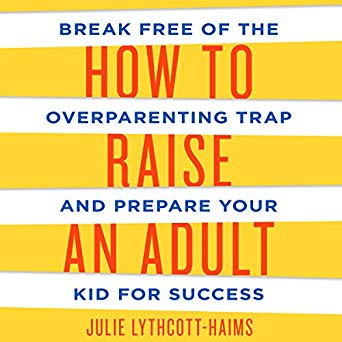 Teens often feel pressured to set goals and choose the next steps in their education or career, all before graduating from high school. As caring adults, we need to support and guide our teens as they attempt to answer these difficult questions about next steps.
Teens often feel pressured to set goals and choose the next steps in their education or career, all before graduating from high school. As caring adults, we need to support and guide our teens as they attempt to answer these difficult questions about next steps.
Get Onto the Path
We can help our teens begin their path to find purpose by building up key qualities in them. William Damon, author of “Path to Purpose,” and Director of the Stanford Center on Adolescence, stresses the importance of teens possessing optimism and confidence towards finding purpose. His research shows teens with high levels of gratitude, compassion, and tenacity tend to develop purpose.
Seven Tips to Start (and Continue) the Conversation
Parents are not responsible for identifying their teens’ purpose — this is the teens’ “work.” But parents can introduce options, provide support, help sort through choices, and model a life rooted in meaning and purpose.
1. Help Teens Understand How Much They Matter
As teens get older, we tend to take their successes for granted — we think they are just meeting our expectations. We spend less time praising them and letting them know how much they matter to us. Our teens need to understand how much others care for them and how they can affect our world for the better.
2. Celebrate Unevenness
People are uneven. Our teens will not succeed in everything. However, there are areas in which each person can uniquely make their mark. We can help our teens find the areas in which they excel. We should challenge our teens to pay attention to (and later reflect on) areas they are good at and enjoy doing. Discover what drives them to keep learning. From there, our teens can begin finding their purpose.
3. Have Small, Frequent Conversations with Teens
Avoid loaded questions like, “What do you want to do with your life?.” Instead, begin conversations with small, non-intimidating questions like, “When was a time you helped someone else?” or “What do you think your best qualities are?.” This can help teens start thinking about their purpose.
4. Model a Life of Purpose, Joy, and Fulfillment
Allow teens to see you as an adult living a life full of purpose, joy, and fulfillment. Be sure to explain meaningful experiences from your own life and how setbacks that seemed discouraging at the time actually led to satisfying new insight.
5. Provide Opportunities for Exploration
Encourage teens to step outside their comfort zone and explore the world around them. We never know what experiences may stick. As teens try new things, point out the skills and strengths they are developing that may help them in the future.
6. Encourage Volunteer Work
Encourage teens to do something meaningful to them. When teens experience personal satisfaction from doing something that makes a difference in the world around them, they develop their personal beliefs and values. This leads to healthy identity development and a sense of purpose.
7. Be Patient!
Allow teens to go at their own pace. Be patient if they feel stuck. It is important for teens to take their time in finding their life purpose — it is okay to not have all the answers right away. We need to allow downtime for reflection and change. Show teens that you are there to support them no matter what.
Excerpted from “Tips to Guide Teens To Find Purpose in Life” from the Center for Parent and Teen Communication based within the Division of Adolescent Medicine at the Children’s Hospital of Philadelphia. Read the full article online for more details.
Source: Center for Parent and Teen Communication | Tips to Guide Teens To Find Purpose in Life, https://parentandteen.com/tips-guide-teens-purpose| Copyright 2021 CPTC
If you have concerns about your teen, CHC Care Coordinators can arrange a free 30-minute consultation so you can explore options with an expert. We invite you to call or email us at 650.688.3625 or careteam@stage.chconline.org to set up an initial Parent Consultation appointment. CHC teletherapy services are available now.





